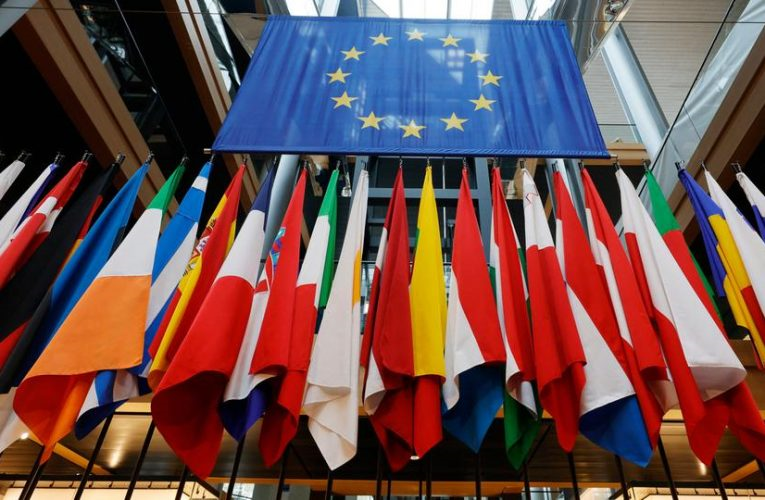EU is forced to backtrack after trying to replace the word ‘Christmas’ with ‘holiday’
The European Union tried to ‘cancel Christmas’ after telling staff to avoid the word in favour of ‘holiday period’ because it is more acceptable and less offensive to non-Christians.
The EU Equality Commission document, which was first issued in October was expected to be a guide to ‘promote equality’ and ‘inclusive communication.’ However, details of the leaked document has led to a furious backlash from Politicians, especially in Italy.
Politicians from Italy – where the story first emerged – accused the EU of waging a war on ‘common sense’ while the Vatican accused Brussels of trying to ‘cancel’ Europe’s Christian roots.
Brussels has now been forced to backtrack, withdrawing what it called a ‘draft document’ after a ‘number of concerns’ were raised.
Brussels subsequently announced it was withdrawing the guide book, saying ‘the guidelines clearly require more work’
Other suggestions contained in the document includes replacing Christian names such as Mary and John with ‘international’ names such as Malika and Julio when using them in generic examples.
Other suggestions contained in the document includes replacing Christian names such as Mary and John with ‘international’ names such as Malika and Julio when using them in generic examples.
Eurocrats documents also suggested that instead of saying ‘Christmas time can be stressful’, staff were told to say ‘Holiday times can be stressful’.#
Cardinal Pietro Parolin, the Vatican’s secretary of state, accused the EU of trying to ‘cancel our roots’ by ignoring – rather than respecting – Europe’s Christian heritage.
‘We know that Europe owes its existence and identity to many influences, but we certainly cannot forget that one of the main influences, if not the main one, was Christianity itself,’ he told Vatican News.
Matteo Salvini, leader of Italy’s right-wing League party and former deputy Prime Minister, accused the EU of ‘folly’ by publishing the rules.
Helena Dalli, the EU’s equality commissioner, shows the guide in issued back in October but its contents only just became public
‘Mary, the mother. John, the father. Long live the holy Christmas … I hope that in Europe, no one will be offended,’ he tweeted.
Antonio Tajani, a former European Commissioner and ally of Silvio Berlusconi, also tweeted his criticism, suggesting the EU was waging war on ‘common sense.’
It is clear that what Brussels describes as ‘inclusive communication’ is more divisive. The EU subsequently announced it was withdrawing the book, saying ‘the guidelines clearly require more work.’
Helena Dalli, the EU’s equality commissioner who put together the guide as part of an equality agenda championed by Ursula von der Leyen, claimed it was a ‘draft document’ that would be revised after ‘a number of concerns were raised.’
‘We are looking into these concerns with the view of addressing them in an updated version of the guidelines,’ she added.
It is not the first time the EU has issued guidance to staff on ‘inclusive’ language.
Back in 2018, staff at the European Parliament were issued with a similar guide that advised against using gendered language such as ‘manpower’ and ‘mankind’. The new guidelines, aimed at EU translators, also recommended against frequent references to ‘man’ or ‘woman’ in official texts. Words such as ‘chairman’ should be replaced by ‘chairperson’, and ‘policeman’ or ‘policewoman’ substituted for ‘police officer,’ the guide said.



